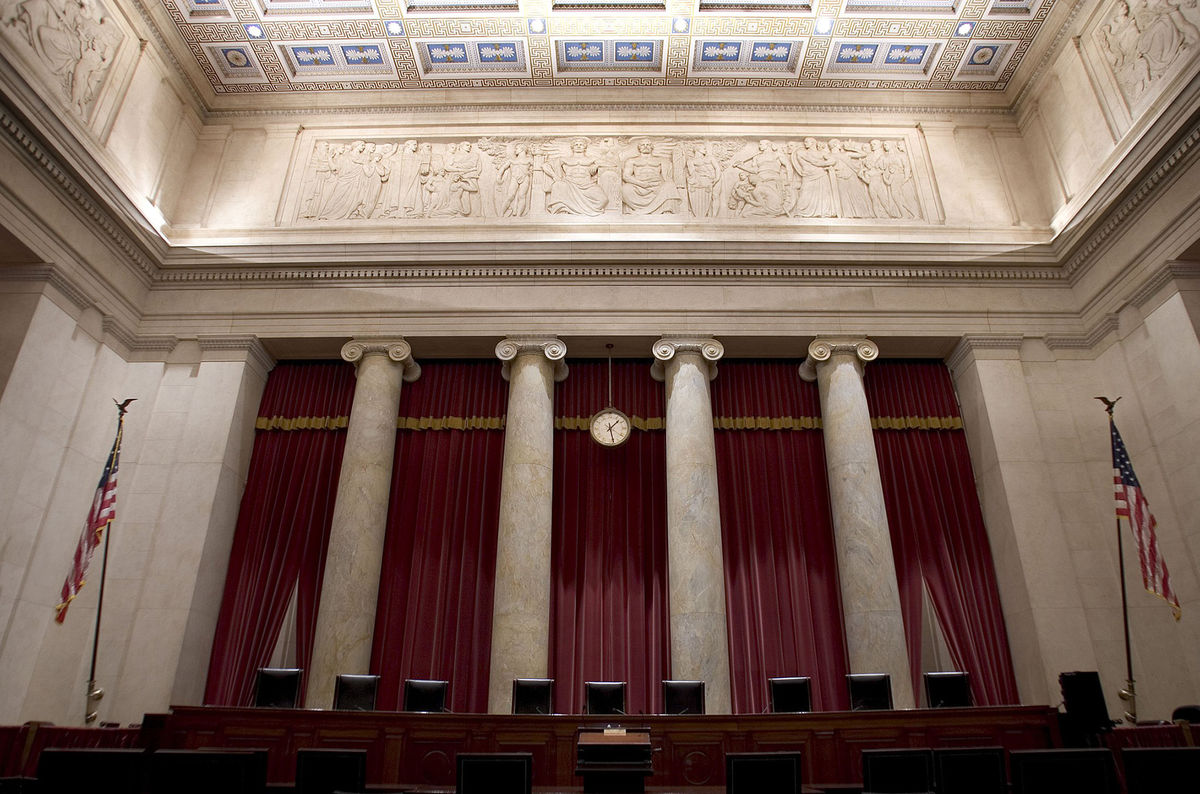It was announced on Tuesday morning that the U.S. Supreme Court has agreed to hear the appeal by the leader of the Virginia House of Delegates after the decision made by the Eastern District of Virginia in the ongoing litigation over 11 challenged legislative districts in the Richmond and Hampton Roads metropolitan areas, alleged to be subject to unconstitutional racial gerrymandering. Virginia House of Delegates v. Bethune Hill (2019) is set for briefing and oral arguments in the Spring.
“Since June we have maintained the constitutionality of the current House of Delegates districts and continue to pursue justice in this important case. This redistricting plan passed with an overwhelming bipartisan majority, including the support of most African American members in the House and Governor Ralph Northam, and was approved by President Obama’s Department of Justice after dozens of public hearings and committee meetings,” Speaker of the House of Delegates Kirk Cox (R-Colonial Heights) said in a press release.
Over the past few months, House Democrats were involved in creating a map using “consultants out of Washington,” and “people who had map software,” and a “map maker,” but would not tell House leadership the names of those involved in altering almost one-third of the Commonwealth’s 100 legislative districts. The map released by Democrats was faced with strong criticism from House Republicans, with Majority Leader Todd Gilbert (R-Page) saying the plan was “[a] hypocritical partisan power grab that would fail to pass legal muster.”
Breaking with his party, Delegate Stephen Heretick (D-Portsmouth) came out against the House Democratic redistricting plan calling it “gerrymandering in response to gerrymandering. It’s tit-for-tat. It’s, in the immortal words of baseball great Yogi Berra, ‘it is deja vu all over again.'”
Meanwhile, Speaker Cox has continuously sought the highest court in the land to review what he calls “clear legal errors” made by the three-judge panel of the Eastern District of Virginia in their most recent decision regarding redistricting in the Commonwealth.
“The Eastern District of Virginia has once upheld the plan and once overturned it, the second time committing clear legal errors that the Supreme Court will now review. As we said in our filing, it is ‘implausible that every House fact witness was dishonest, that every House expert used bad methodology, that race predominated in every Challenged District, and that no Challenged District needed to be above 55% BVAP under VRA §5—and, at the same time, that every fact witness for Plaintiffs was honest and accurate, every expert witness for Plaintiffs used reliable methodology, and every factual inference was in their favor,'” Speaker Cox explained.
He added, “The case also gives the Supreme Court the opportunity to provide clear guidance and address the chaos that has resulted from a bevy of redistricting laws and court cases in this difficult and confusing area of law.”
Last month, although they contend that the current bipartisan-derived legislative map drawn in 2011 – which was supported by the Virginia Legislative Black Caucus – is constitutional, House Republicans released a “politically neutral, race-blind” remedial redistricting map, which garnered bipartisan support. Some of the highlights of the newly-drawn map were that it did not make any unnecessary changes, like altering non-adjacent districts; did not combine any currently-elected House members in new district; and did not significantly alter the partisan makeup of any competitive House districts, unlike the plan from the left.
“If Democrats are serious, they’ll come to the table and engage in good-faith discussions,” Cox stated after the map’s unveil. “If they don’t, then it will be clear that they are only interested in a self-serving map to bolster their political standing, whether it’s obtained through the legislative or judicial process.”
Speaker Cox then scheduled a House of Delegates Special Session to vote on the new map on October 21. Nevertheless, a short time later, Governor Ralph Northam (D) declared that he would veto House Bill 7003 despite the fact that it garnered bipartisan support, leading Cox to cancel the vote on the GOP redistricting plan. Following the impasse between a majority Republican legislature and a Democratic executive branch, The Eastern District of Virginia was left responsible for providing a court-appointed “special master” to re-draw the House districts.
“After weeks of feigning interest,” Cox remarked after the block from Northam, “the governor has admitted at last that he wants federal judges appointed by President Obama to draw a redistricting map to deliver a Democratic majority in the House of Delegates.”
As the Supreme Court will now weigh in on the constitutionality of Virginia’s legislative map, partisan politics will take a backseat to the jurisprudence of the newly-cemented conservative court and test the merits of the map and the one-member Republican majority in the House.






